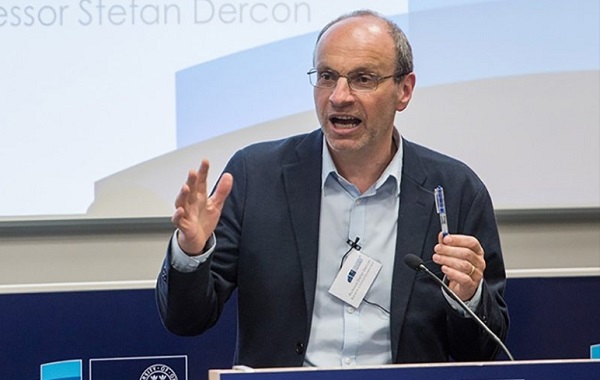Professor of Economic Policy at the University of Oxford, Prof. Stephan Dercon has attributed Africa’s staggered economic growth due to lack of coherence and the short-term nature of its economic development plans.
He revealed his observation at the Merian Institute for Advanced Studies in Africa (MIASA) at the University of Ghana, where the institute held its 2023 Policy Conference which brings together academics, policymakers, civil society and other professionals on the continent and across the world to discuss issues underpinning economic development in Africa.
The two-day event which was held from the 21st to 22nd November, 2023 drew a large participation of academics, civil society and a myriad of professionals including journalists across both the public and private spheres of the governance space on the continent and from the diaspora.
The theme of the Conference was ‘Accelerating Africa’s Economic Transformation Towards Shared Prosperity and Sustainability’.
Speaking at the well attended and colourful ceremony, the Guest Speaker, Prof. Stephan Dercon stated that since the 1990s, developing countries particularly in Africa have lacked policy coherence in their economic development plans which has led to inconsistencies in real growth in their home countries.
He was of the view that there was too much focus on exploration of mineral resources to the detriment of tailoring policies which will focus on diversifying their economies into manufacturing and export driven nations whose per capita incomes could translate into better lives of their citizens.
“I want to do a small comparative analysis of developing countries in Africa in particular, where since the 1990s, incoherent economic policies and short term policy measures overly dependent on minerals resources have caused a healthy chunk of countries on the continent not to spur real quality growth in their economies to create full value for the citizens to take advantage of.”
“Countries like Ethiopia and Ghana are outliers in certain instances in being able to craft policies which had significant on their development trajectory but somehow fell of the path of sustained progress from the period mentioned above due gaps which might have been triggered by both political and governance issues which are key in spearheading consistency in development.”
Prof. Dercon intimated that countries like Malawi and Ethiopia have been able to turn around the economies through shrewd economic policies even though they are not resource-endowed like their other African counterparts in the past 3 decades.
He added that the healthy economies being enjoyed by the above mentioned countries were due to sound democracies and creative, innovative policy decisions by the political establishment to create a congenial atmosphere for a dynamic and fully functioning economy unlike the resource rich peers on the continent.
“As part of the move of low income countries in developing countries inclusive of some countries in the Asia and Africa from the 1990s, countries like Ethiopia and Malawi are not too endowed with natural resources; but due to sound economic policies and prudent political management from leaders in the intervening periods, [these measures] played key roles in spurring growth unlike their other counterparts who were overly fixated on the supposed benefits of their natural resources which shortchange how their development patterns were set in actual reality.”
“My findings indicate that sustainable economic development in Africa over the last 30 years is not only restricted to history and mineral resources but differ in how innovative leaders are in crafting home made policies which cater to such nations on a case by case basis.”
Stefan Dercon is Professor of Economic Policy at the Blavatnik School of Government and the Economics Department, and a Fellow of Jesus College. He is also Director of the Centre for the Study of African Economies.
He combines his academic career with work as a policy advisor, providing strategic economic and development advice, and promoting the use of evidence in decision making. Between 2011 and 2017, he was Chief Economist of the Department of International Development (DFID), the government department in charge with the UK’s aid policy and spending. Between 2020-2022, he was the Development Policy Advisor to successive Foreign Secretaries at the UK’s Foreign, Commonwealth and Development Office.
His research interests concern what keeps some people and countries poor: the failures of markets, governments and politics, mainly in Africa, and how to achieve change.
–
Story by: Sika Togoh | univers.ug.edu.gh


Your writing style is engaging. Catch bbc persian live radio — in‑depth reports and documentaries. clean player and fast startup. analysis programs, feature stories. clean player and fast startup.